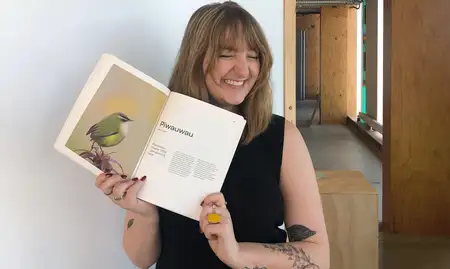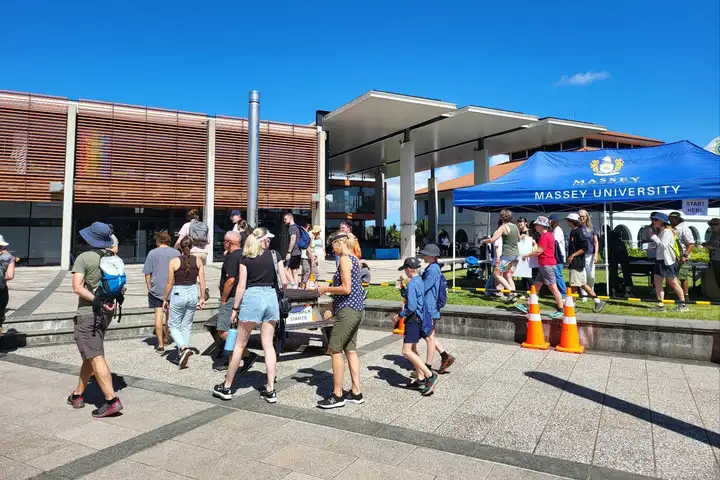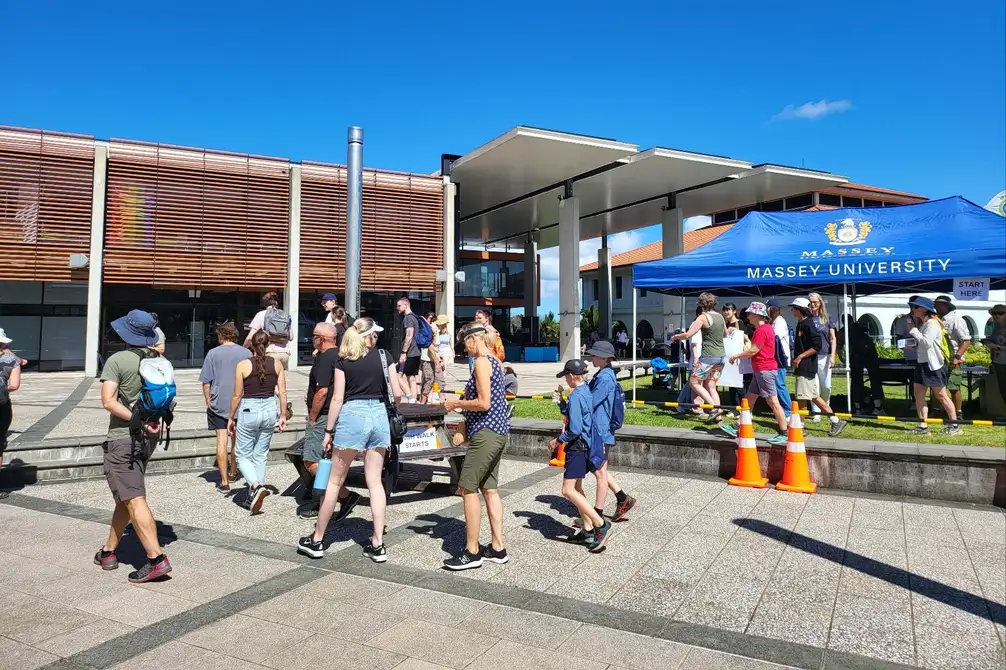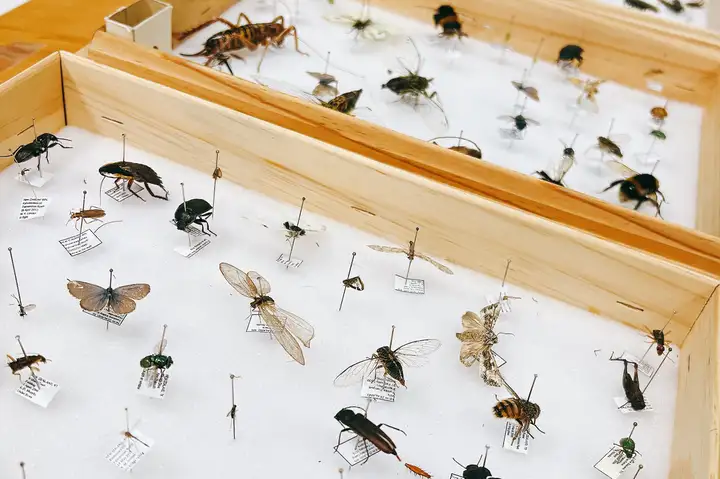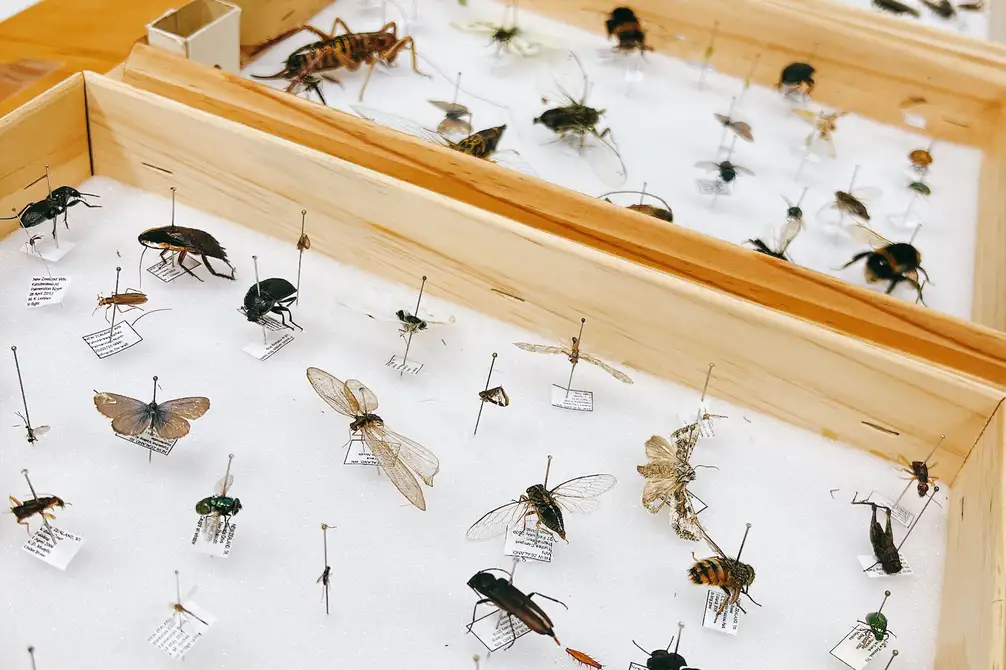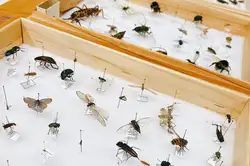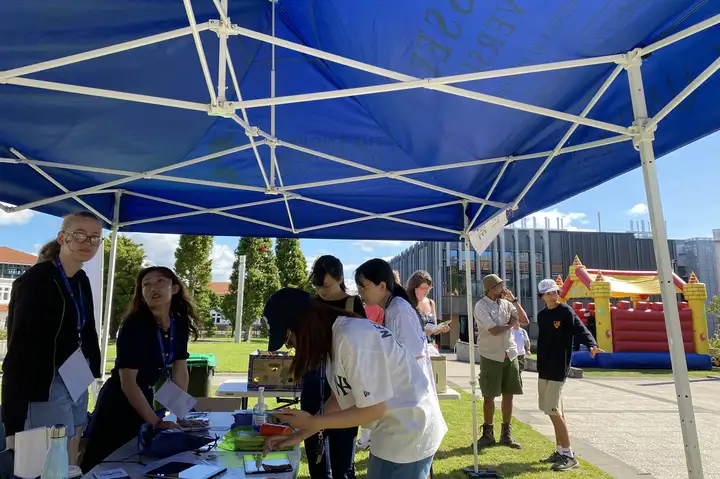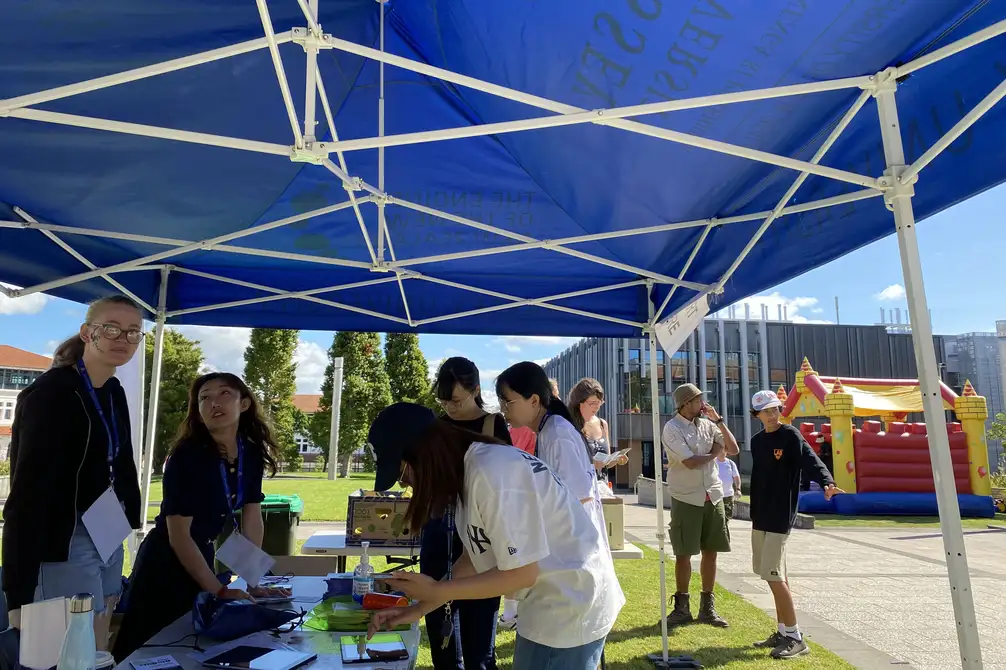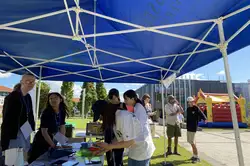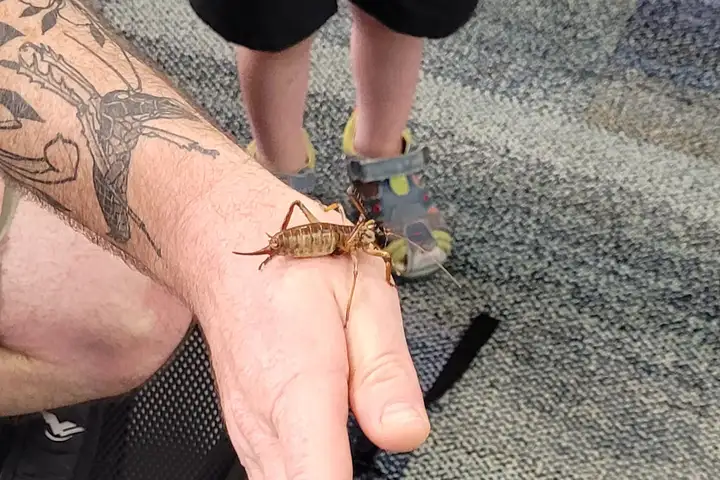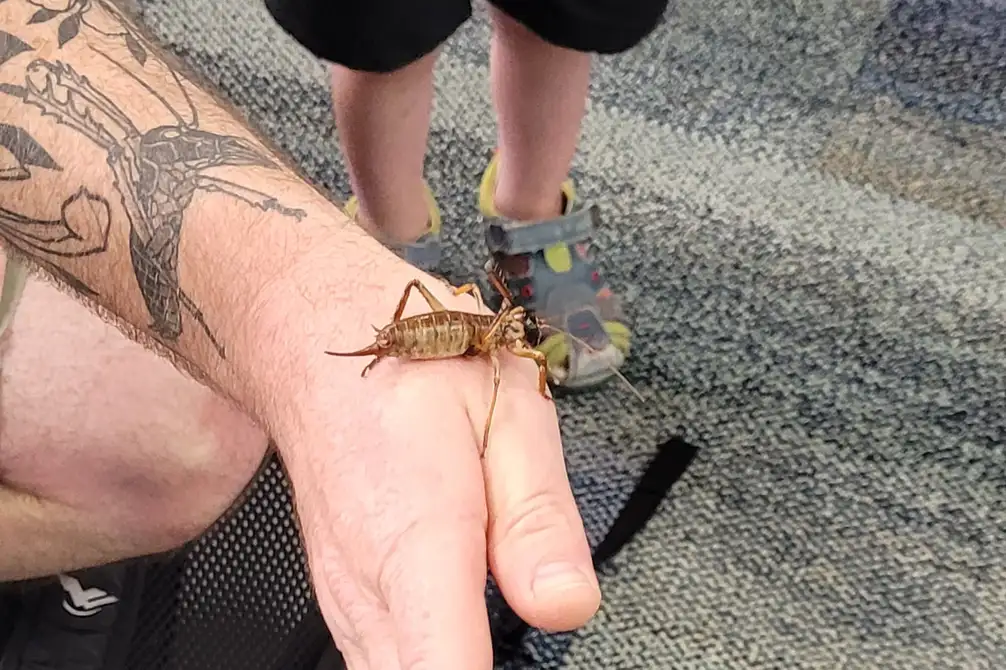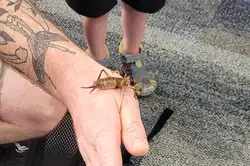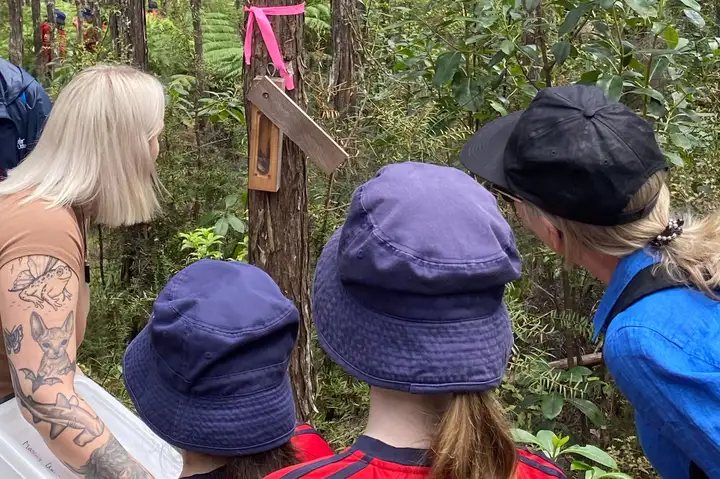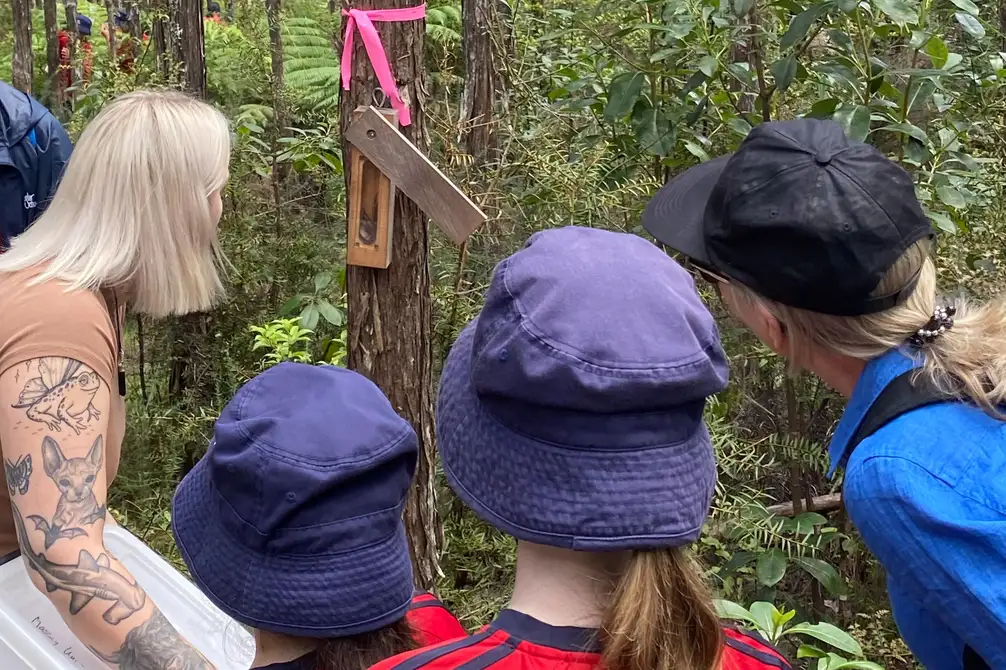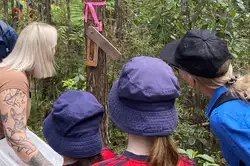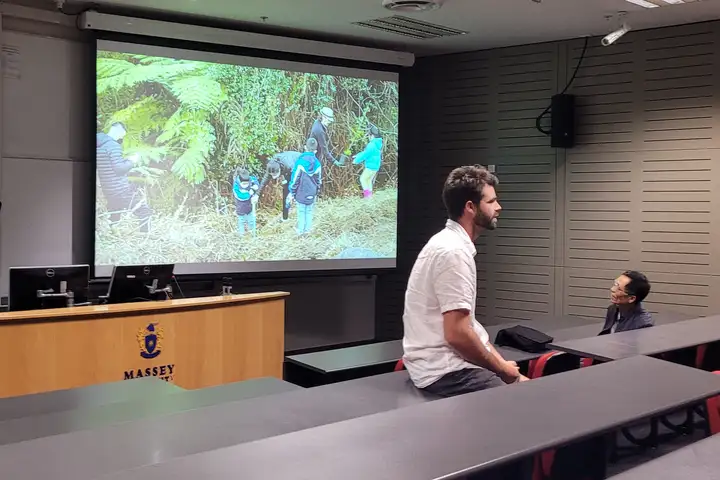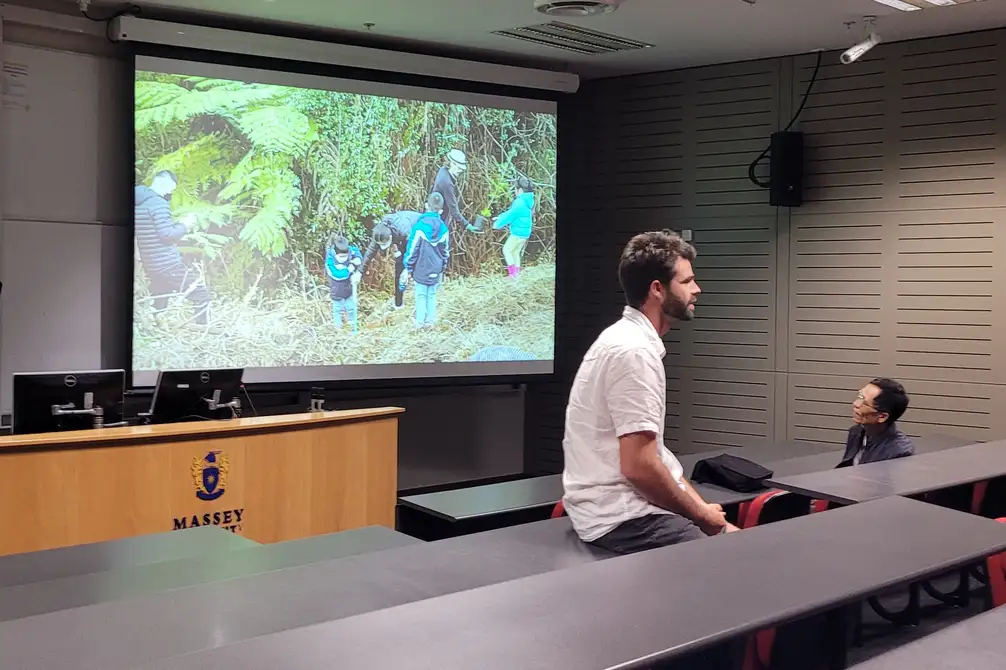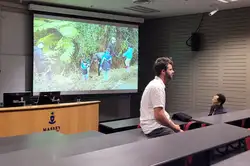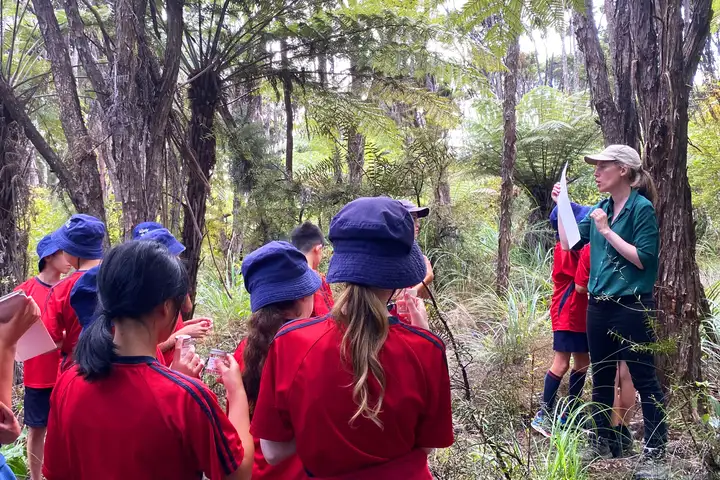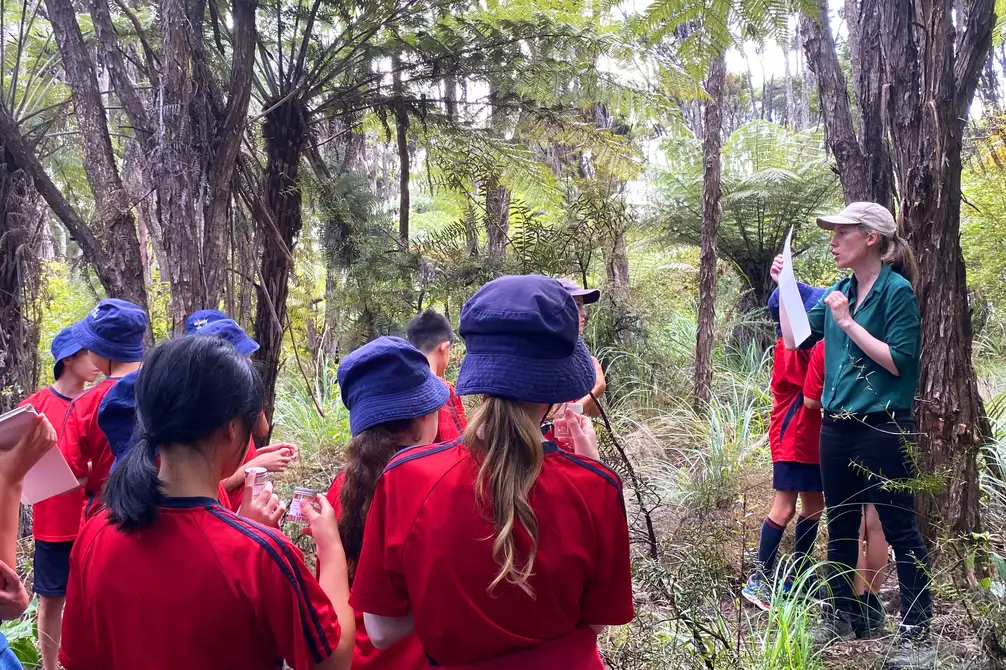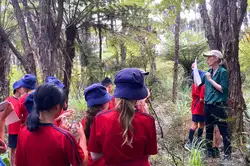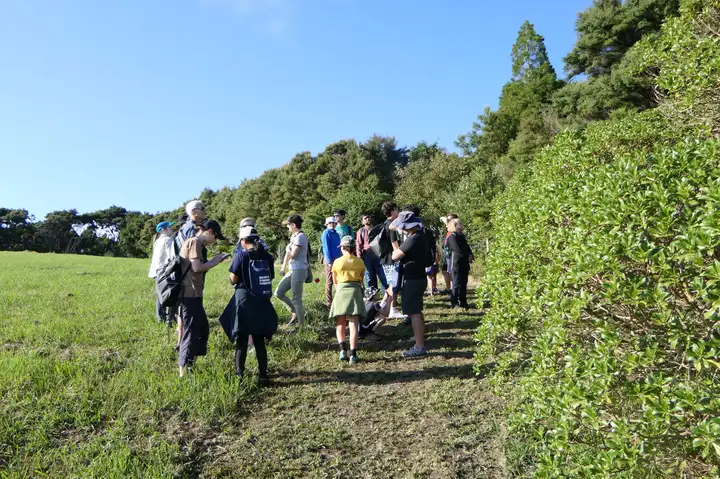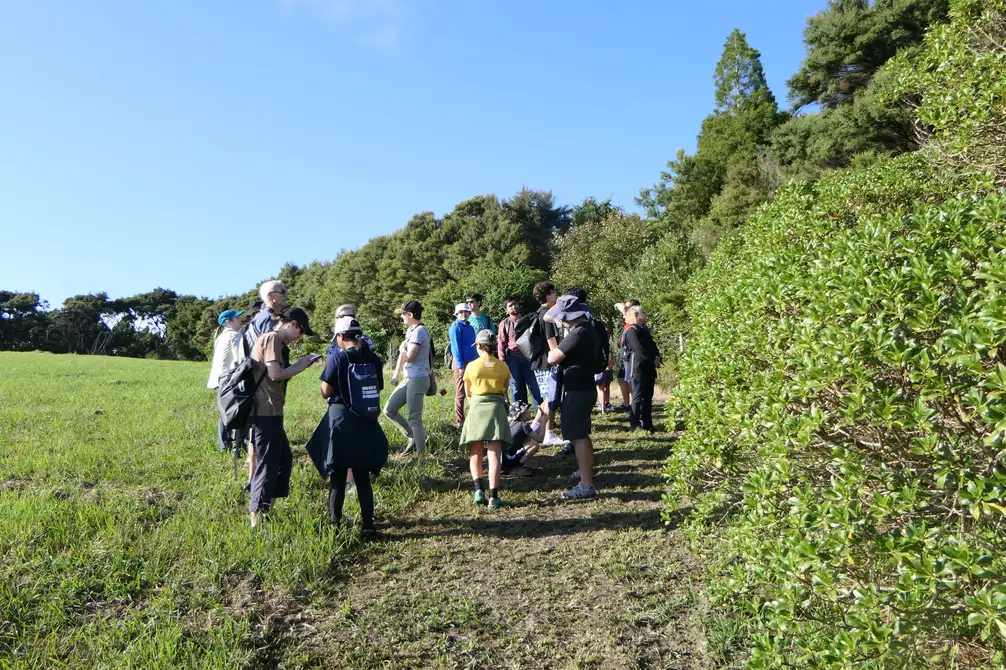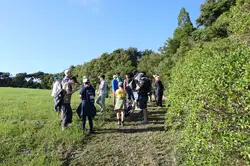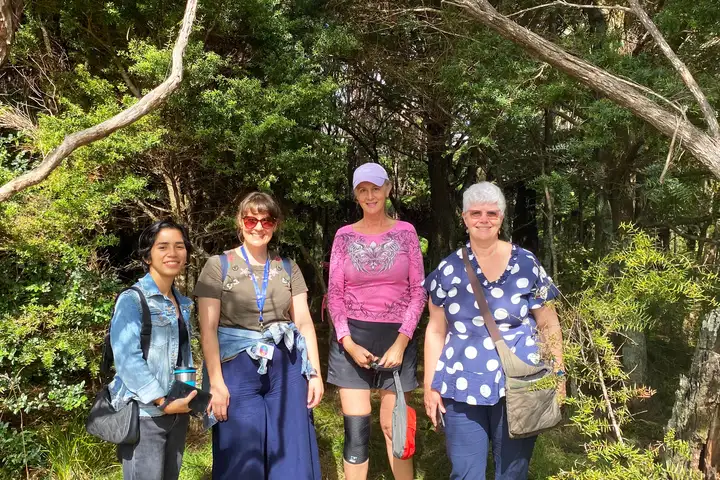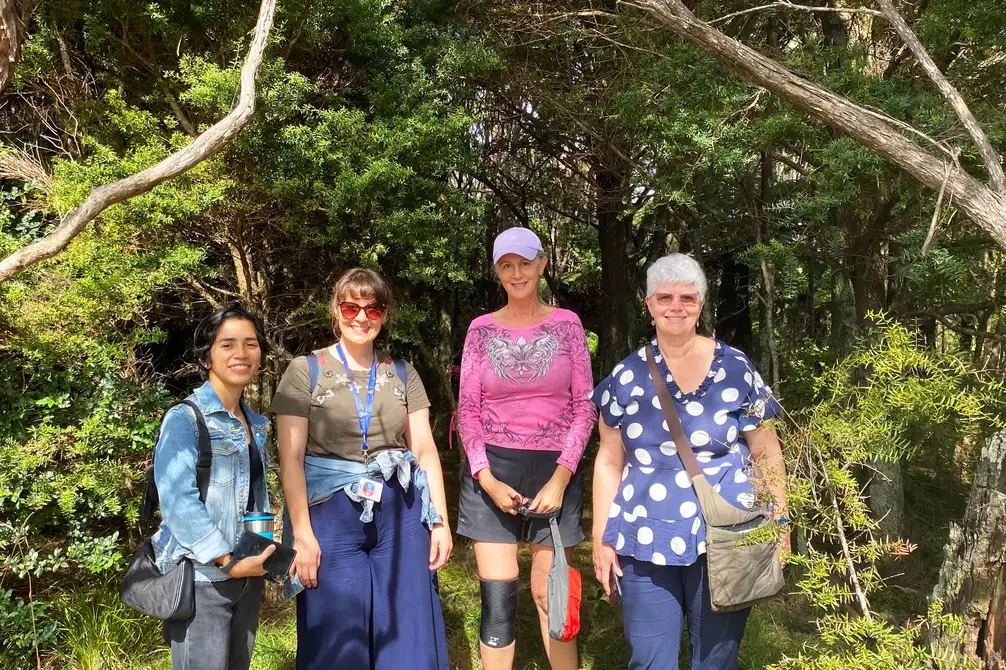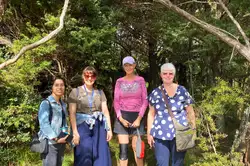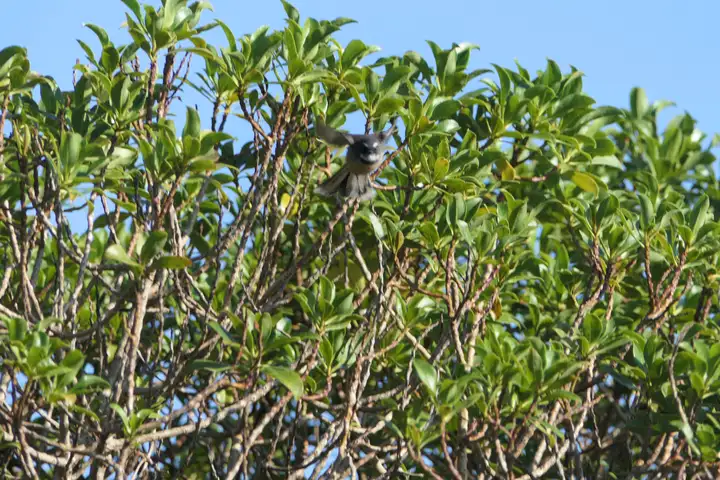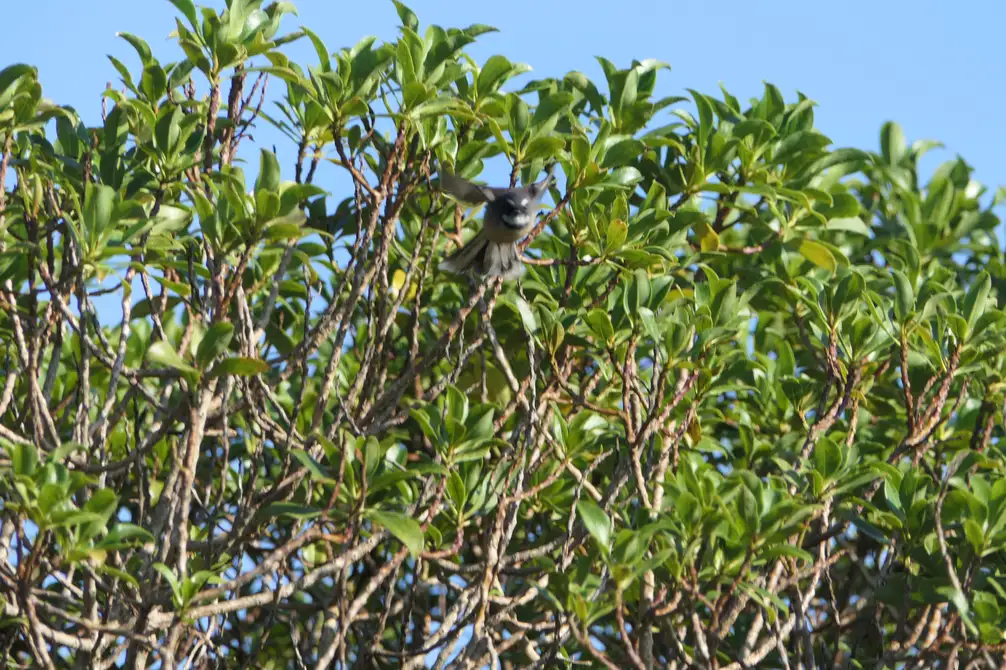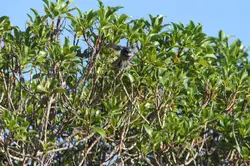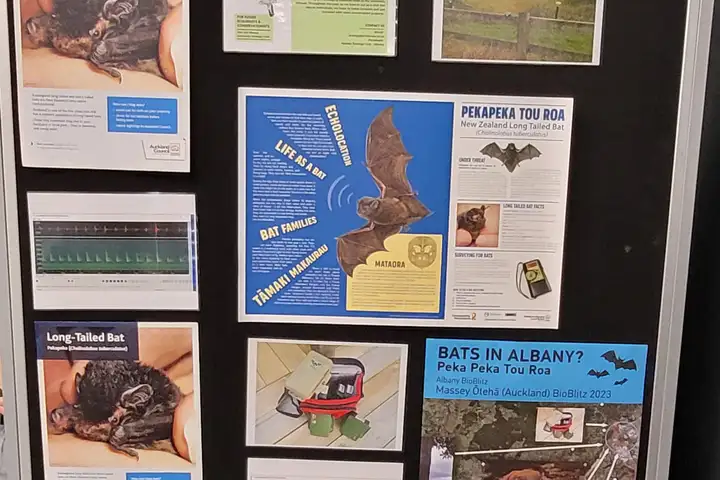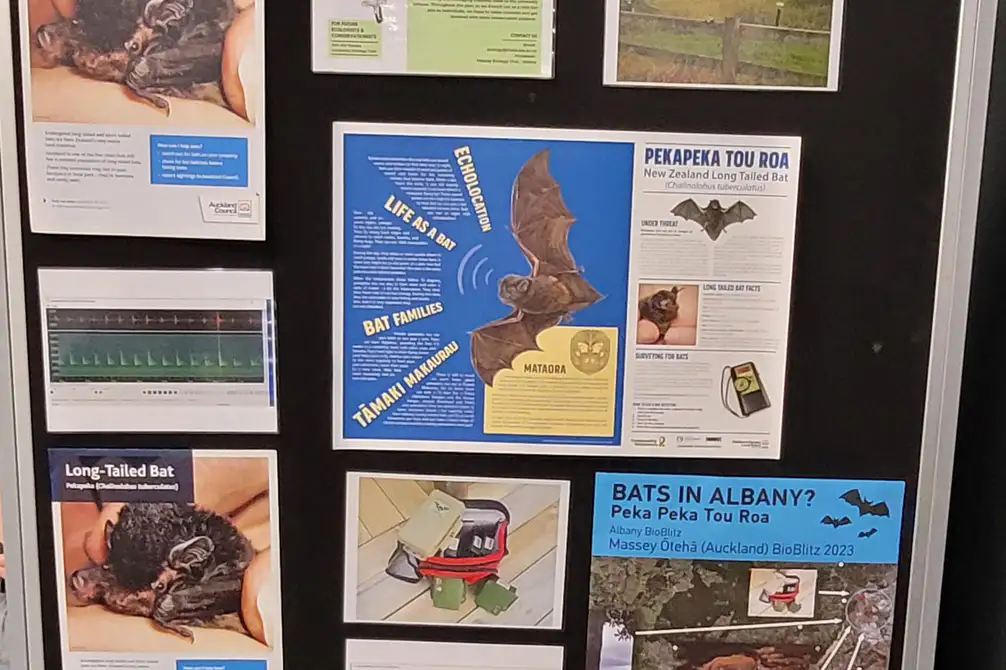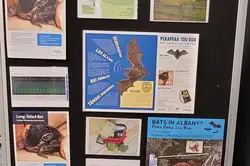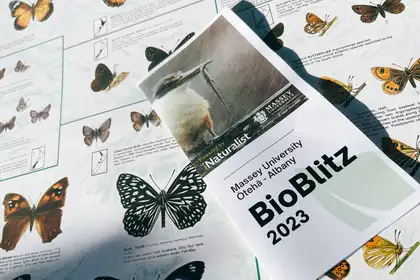
The first BioBlitz hosted by the university saw a successful all-day event, running from 8am until 10pm. The day kicked off with a bird walk guided by Dr Michelle Roper, with another nine guided walks occurring throughout the day and a final night walk at 9pm.
The walks were led by a series of experts including Te Kunenga ki Pūrehuroa Massey University’s Associate Professor in Zoology and Ecology Weihong Ji, Dan Marrow from Auckland City Council and Fernhill Escarpment expert and advocate Nick Mayne.
Attendees were given an introductory lesson to the iNaturalist app, which they were able to use throughout their walks to document the species they encountered. The photos were analysed by specialists to correctly identify each species, with the results showing that at least 158 species call Fernhill Escarpment home.
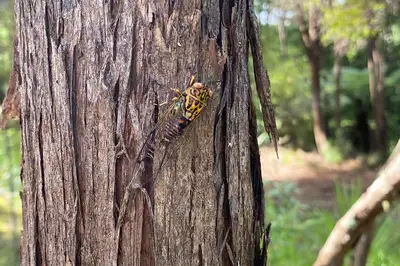
Volunteers from the Massey University Ecology Club were also present to guide walks and share their knowledge and passion. The club provides an academic and social community for likeminded students interested in ecology to further their skills and experience through courses and volunteering.
A series of talks on topical issues led by conservation experts were scheduled throughout the day. Auckland Council’s Senior Sustainable Schools Advisor Frazer Dale gave a talk about conservation resources on the council website Tiaki Tāmaki Makaurau Conservation Auckland, and on the results of Ōtehā stream’s recent environmental DNA test. Traces of freshwater mussel DNA were found in the stream, which is a positive sign as mussels are an indicator species whose presence reflects a healthy ecosystem.
Mr Dale says the BioBlitz is a meaningful way to get the community engaged in local conservation efforts and highlight potential career pathways in natural sciences.
“The Ōtehā campus BioBlitz was a great success with a good community turnout. I was glad to be part of it as it aligns with my council role, particularly place-based projects, conservation education and pathways for youth in conservation. I’m invested in encouraging more rangatahi to explore career pathways into conservation and science-based roles, so meeting Ecology Club students and seeing young people get involved was fantastic.”
Massey’s Associate Professor Warwick Stent introduced Matt Cummings from Untangled Landscapes, who gave a talk on Te Hōnonga a Iwi Rosedale Park Restoration Project. The project involves and educates local schools and other community volunteers in the use of natural methods rather than chemical sprays and fertilisers to control pests to revitalise the land and increase biodiversity. Dr Stent later joined Dr Hedy Huang in an interactive session discussing Integrated Reporting and other recent developments which highlight the important role of professional accountants in corporate reporting on climate change and biodiversity.
Also present was a Massey Business School/School of Accountancy stand hosting Christine McKinnon from Chartered Accountants Australia and New Zealand (CAANZ), who was representing the broader accountancy profession. Ms McKinnon highlighted how the profession is involved in corporate reporting on sustainability, climate change and biodiversity. The Massey University Accountancy Club (MUAC) were on hand to help with the stand, as well as assist with bush walks, welcome visitors and promote the event.
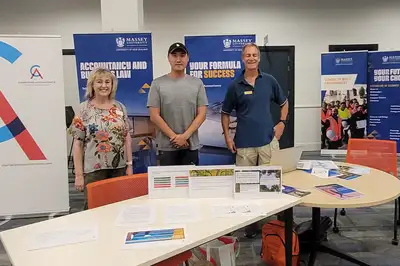
Left to right: Christine McKinnon of CAANZ, Massey Accountancy Club alumni Jun Wen, and Associate Professor Warwick Stent.
The Massey Business School was a major financial sponsor for the BioBlitz, which Dr Stent says was important as these events provide opportunities for the business community to gain real insight into issues that are critical for future environmental and economic wellbeing.
“There are increasing expectations for business leaders to understand sustainability issues more fully and to actively manage risks and opportunities relating to these challenges. Accelerating climate change and biodiversity loss have been referred to as mutually reinforcing emergencies, underlining the importance of business efforts to better look after our environment.”
Other lectures included Dr Elizabeth Ostrowski exploring the world of slime moulds and Professor James Dale speaking about Auckland’s Big Six, which explored the key native birds of the region, including spectacular GoPro footage.
The College of Humanities and Social Sciences and the School of People, Environment and Planning also provided financial support for the BioBlitz. The event included a sociology angle as those attending and visiting the bush were asked to respond to two questions: ‘what calls you to the bush?’ and ‘how might the bush connect with our big environmental issues?’
The collection of responses provided valuable insights for sociologists to understand the motivations for attending the BioBlitz and appreciate the connections people make between participating in the event and current environmental issues.
Visitors were also treated to a range of insect displays and microscopes for a closer look at native and introduced specimens, as well as face painting and bouncy castles. Some even got an up close and personal encounter with an escapee wētā!
Following the success of the university’s first BioBlitz, Associate Director of Sustainability Dr Allanah Ryan, who played a leading role in the planning of the event, says there is the intention to do more of these conservation-focused events across the three campuses.
Ōtehā campus also hosted Westminster Christian School on the Friday prior to the community event, allowing an enthusiastic group of year seven and eight students to experience their own mini-BioBlitz event. The visit provided a fully immersive learning experience led by Dr Anne Wignall, with the tauira (students) getting out into the bush to collect specimens, check out wētā hotels and set up tracking tunnels.
Related news
Auckland campus to host Te Kunenga ki Pūrehuroa Massey University’s first ever BioBlitz
The university will be opening the doors of its Ōtehā campus in Auckland to all biodiversity and conservation enthusiasts as it hosts its first BioBlitz event on Friday 3 and Saturday 4 March.
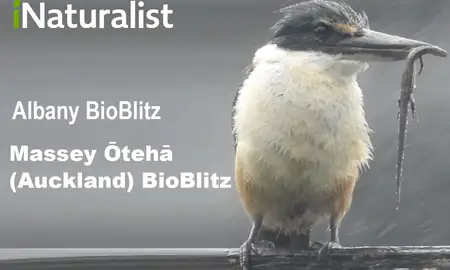
Wildbase: A pillar in Aotearoa New Zealand’s conservation efforts
For World Wildlife Conservation Day, we wanted to highlight the important work our Wildbase Hospital does in providing veterinary and scientific services to a number of conservation programmes around Aotearoa New Zealand.
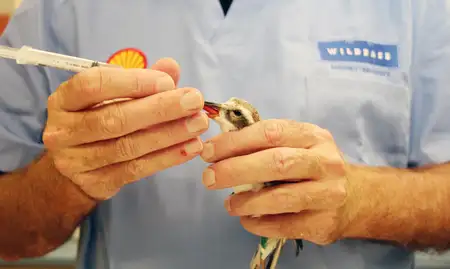
Tiaki: A shout-out to Aotearoa’s lesser-known creatures
To celebrate World Wildlife Conservation Day, we wanted to share the mahi a member of our Massey whānau has done to encourage the younger generation to get interested in conservation and our lesser-known endangered wildlife.
